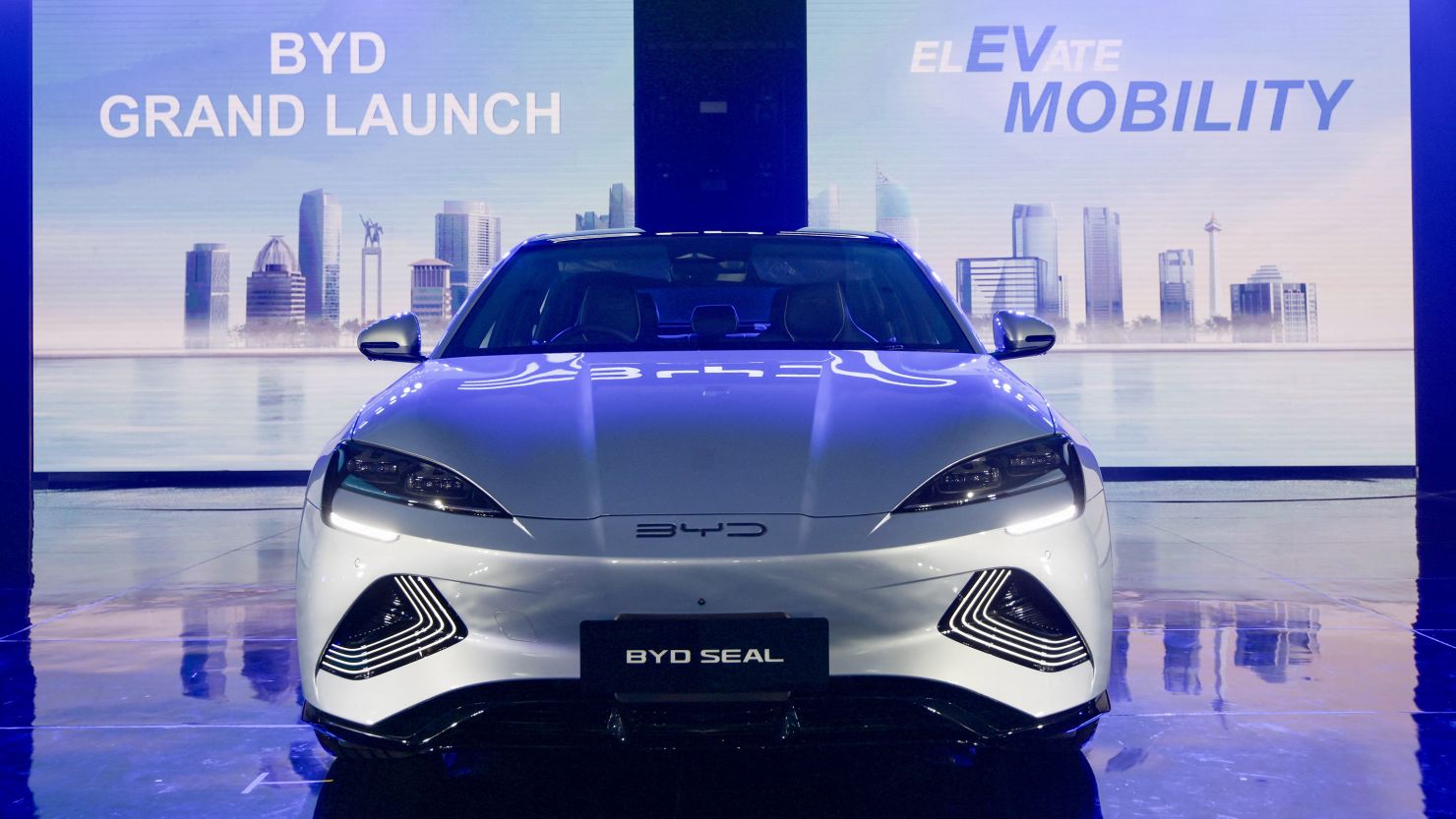BYD reported a jump of more than 80% in profit in its first set of annual earnings since it stole Tesla’s crown as the world’s top seller of electric vehicles.
Net profit almost doubled to 30 billion yuan ($4.2 billion) last year, from 16.6 billion yuan ($2.3 billion) in 2022, the Shenzhen-based company said Tuesday.
That’s despite BYD operating in a “complex external environment,” it noted, citing high levels of inflation globally, and a slowdown in growth in most major economies.
BYD overtook Tesla (TSLA) as the top seller of EVs worldwide in the last three months of last year, capping an extraordinary rise for the Warren Buffett-backed Chinese carmaker. BYD sold 525,409 battery electric vehicles (BEVs) during that period, compared with Tesla’s 484,507.
In 2023 as a whole, BYD sold a record 3.02 million vehicles globally, up 62% from 2022. That figure includes 1.44 million plug-in hybrids, which Tesla does not sell. Elon Musk’s carmaker still sold more BEVs last year: 1.8 million to BYD’s 1.57 million.
Price war
Compared with Tesla, BYD’s cars are more affordable, which has helped it attract a wider range of buyers. Its entry-level model sells in China for the equivalent of just over $10,000. The cheapest Tesla car, a Model 3, costs almost $39,000.
But intensifying competition and a brutal price war last year have impacted the profit margins of many Chinese car makers, including BYD.
The country’s car industry recorded an average profit margin of 5% for 2023, compared with 5.7% in 2022 and 6.1% in 2021, according to the most recent figures from the Chinese Passenger Car Association.
Despite slim margins, the price war doesn’t appear to be abating. Earlier this month, BYD lowered the starting price of its most affordable EV, the Seagull hatchback, by 5% to 69,800 yuan ($9,670). Other Chinese carmakers have also announced price reductions in the past few weeks, including Geely, Chery, and XPeng Motors.










